God’s Foreknowledge and Human Freedom: A Compatibilist Solution Project


PUBLICATIONS
⦿ Kuźniar, Adrian, 2024, “Counterfactual Power and Genuine Choice.”
Theoria
Keywords: counterfactual power; genuine choice; compatibilism; logical fatalism; theological incompatibilism; nomological incompatibilism; fixity of the past; counterfactual dependence
DOI: https://doi.org/10.18290/rf237102.
Abstract:
The article introduces a distinction between weak and strong counterfactual power and shows that as far as the metaphysical aspect of choice is concerned, T. Merricks’s examples do not undermine the proposition that strong counterfactual power over a fact suffices for having a genuine choice about that fact. This is relevant to debates about logical fatalism, theological incompatibilism and nomological (determinism) incompatibilism. If strong counterfactual power is sufficient for having a choice, then in each of the main arguments for the mentioned stances, the negation of the argument’s conclusion entails the negation of its key premise. It is further argued that those key premises cannot be justified by the fixity of the past because the latter holds only to the extent warranted by the asymmetry of counterfactual dependence between the past and the future. Therefore, the pastness of such facts as that propositions about our acts were true before we were born, and that God believed then that we would perform those acts, does not provide any reason to believe that we do not have a choice about those facts. Fatalists and incompatibilists assume in their arguments something that has yet to be justified.
⦿ Kuźniar, Adrian, 2023, “God’s Foreknowledge, Human Freedom, and the Asymmetry of Openness.”
Roczniki Filozoficzne (Annals of Philosophy) LXXI (2): 147-161
Keywords: God’s foreknowledge; ability to do otherwise; compatibilism; fatalism; asymmetry of openness; Ockhamism
DOI: https://doi.org/10.18290/rf237102.9
Abstract: The paper defends a compatibilist solution to the problem of the relationship between divine and human freedom. It is argued that the asymmetry of ability constituted by our ability to foreknowledge influence the future and our inability to control the past results from the asymmetry of openness between fixed past and open future interpreted in terms of the asymmetry of counterfactual dependence. Therefore, if the asymmetry of openness is not true of some types of facts, then we may be able to control them even if they are facts about the past. It turns out that widely shared accounts of the nature and source of God’s foreknowledge entail that the asymmetry of openness does not apply to God’s past beliefs about future contingencies. Thus, it is unjustified to claim that we are unable to now do anything such that, if we were to do it, God’s past beliefs would have been different.
⦿ Kuźniar, Adrian, 2024, “Kompatybilizm teologiczny a problem Newcomba” ("Theological Compatibilism and Newcomb’s Problem”)
Filozoficzne Aspekty Genezy (Philosophical Aspects of Origin)
Keywords: theological compatibilism; Newcomb’s problem; foreknowledge; fixity of the past; counterfactual dependence; Ockhamism
DOI: https://doi.org/10.53763/fag.2024.21.1.234
Abstract: The paper examines and defends theological compatibilism – according to which human freedom is compatible with the existence of essentially omniscient God – against the background of a thought experiment known as Newcomb’s problem. It is argued that if a predictor in Newcomb’s situation is just a supreme scientist, it is rational to choose two boxes, but if he is essentially omniscient God, then it is rational to take one box only. The rationality of the latter choice is grounded in the truth of the conditional, “If S were to choose otherwise than S will, God’s past belief about S’s choice would have been different.” The truth of that backtracker does not deprive S of her ability to choose otherwise. On the contrary, it implies that God’s past beliefs about future contingencies counterfactually depend on the future. But if some part of the past counterfactually depends on our future acts, then there is no reason to claim that we are unable to do anything in the future such that if we were to do it, then that part of the past would have been different than it was. This kind of ability to control the past does not contradict the principle of the fixity of the past properly interpreted.
(C) Designed by ’Gra-Fika’ Filip Kawczyński